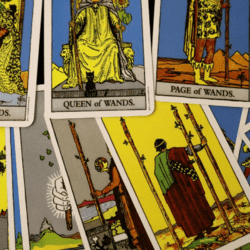I have been wanting to talk about magic since the initiation of the Hearth of Hellenism. I’ve pushed the topic off because I needed figure out how to properly address the topic that will allow the read to be receptive and not reactive. Magic is a very popular subject, with various traditions and many practitioners to match – it is easy for this topic to get out of hand quickly.
I use to do a little magic back in the day, my favorite kind is candle magic. My relationship with magic has been a conflicted one because I’ve sensed a disconnect between contemporary magical attitudes with traditional Greek religious and philosophical attitudes that I am aware of. Studying Hellenism has helped me flesh out what these issues are.
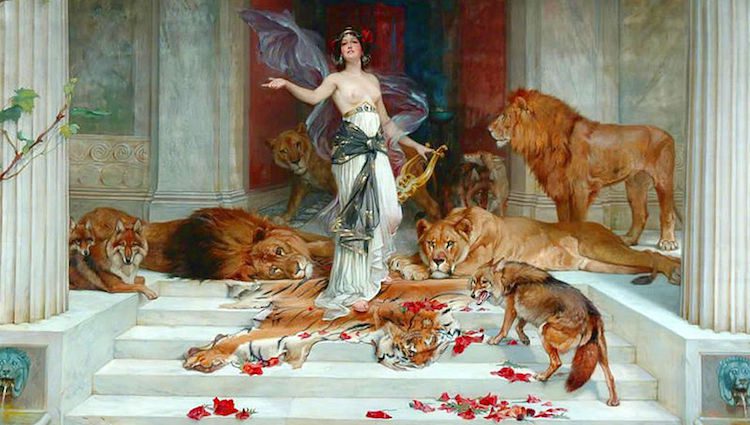
The position which I am taking is not a negative one. I am not negating magical traditions, denying their existence in antiquity and or today. Nor am I condemning magic or making any negative claim. With this said, the purpose of this entry is to explain the incompatibility with magic (as it is popularly understood and practiced today) and Hellenism.
I will be addressing this issue as a Greek in 2018. I need to state it this way because this is not an exploration into magical behavior of antiquity from the etic scholarly perspective. This is an emic perspective and answer. Magic (as it is popularly understood and practiced), for Greeks, is neither condemned nor encouraged. Simply, we understand that it is unessential to Hellenism, it is not a pillar of our culture. There is culturally specific understanding of what magic is which I will explain.
This indifference towards magic (popularly understood and practiced) as I interpret stems from its obsolescence. Magic became an obsolete techne (technology/skill/craft). Mankind produces technologies appropriate for any given time to fulfill a need. Our need to communicate with each other created the postal service, telegrams, the phone, SMS, and facetime. While we could use any of these technologies today, we don’t think of using a telegram because the phone is more effective. In this line of thinking, magic is obsolete considering other advancements which we have available to us to improve our lives and engage with the gods harmoniously.
What is the “advancement” to which I am referring to which have made magic obsolete? It would be the Greek virtue system. At the core of Hellenism, the system of virtue are our tools for transforming and cultivating the soul which creates harmony. Virtue (arete) aims at helping you to achieve excellence, lifting your soul in the process. There are the four cardinal virtues which you may be familiar with – prudence, temperance, fortitude, and justice. There are also other virtues such as bravery, generosity, industriousness, honesty, respect, diligence and so on.
Virtue is tied to the gods because the gods, in their nature, possess virtue. Human’s cannot truly possess virtue, but through the habit of imitating the gods and their virtues as best as we can, we can grow and develop our souls. These virtues have real implications in our lives and create change within us and outside of us. I have seen it in action and it can work instantaneously. Now, isn’t one of the main goals of magic to create change of some sort? Virtue works at what I would consider the highest levels that the gods operate at. Because virtue is tied to the gods, virtue is powerful. Through it, you can “activate” the gods in your life so to speak.
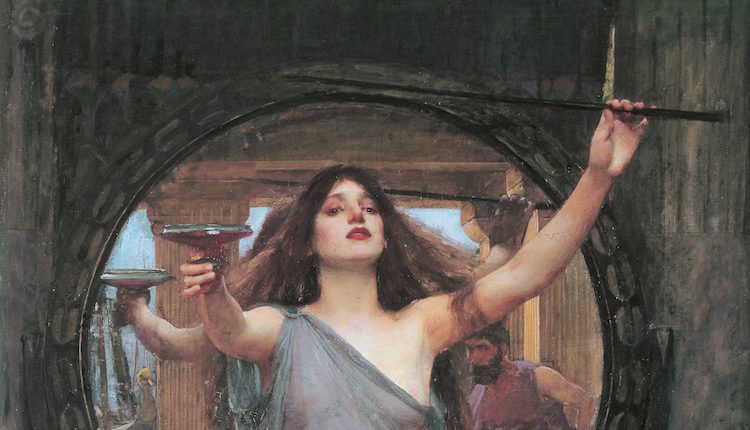
The Greek philosophical tradition was pushing mankind on the path of reason and logic for understanding the world and how to live the best way possible. Logos (reason) is divine and thus so is our intellect as a species. Following reason does not deny divinity, it is deeply intimate with divinity. Philosophy is supposed to be practical in your life to help you live well, not just to theorize endlessly as it has become today – detach from our lives. Philosophy in Hellenism is not void of religious significance. What we consider “religion” was ubiquitous in antiquity, diffused into all activities. Keep this in mind when thinking about the importance of philosophy. Philosophy in Hellenism is the theory of our religion, the mechanics.
While magic still existed after and throughout the Greek and later Roman world, it did not really fit into the new paradigm of rational thinking, seeking to understand the word through reason. Magic is not foundational in Hellenism as it mainly operated on the periphery of society, like an add-on, but not as a centerpiece or defining character trait of Hellenism. Religion in Hellenism is theocentric, Greek culture has always centered itself around the gods. Piety, devotion, sacrifice, and prayer are Pan-Hellenic ways of engaging with the gods, these things are not magic.
Magic alters the basic religious structure in ways that make it incompatible. Magic is like prayer in the sense that you are going to a god for help. But it is done improperly. Cruse tablets for example demonstrate this – they read a lot like prayers in structure but they are asking the god to do harm to others. According to the major philosophical tradition, Platonism, gods do not harm people. As such, curse tablets are not an acceptable practice worthy of imitation today.
Additionally, I think the basic logic behind magic that our ancestors may have had was flawed. I think that approached magic as an attempt to “pray loudly.” If you wanted the gods to hear your prayer first over others (Greek society was highly competitive don’t forget), it seems the logical thing to do is to ritualize the prayer in some way to give it a little “kick.” Magic thus is created to amplify the prayer to get the gods’ attention before other prayers. As such this is one reason why ancient magic and religion is blurry. Magic borrows from religion’s ritualism and modifies it outside of the normative use. Magic with this logic is “bad religion” because you do not need to “pray loudly” – the gods are not hard of hearing, you are not going to get special attention.
Magic is antagonistic to the Greek tradition. Magic for some is viewed as an attempt to exercise your will onto forces beyond your own. In the most negative belief, magic is used to bend the will of the gods to do your bidding. This notion is blasphemy to Greeks. You cannot make the gods do anything for you, you cannot force them, bribe them in any way. Freedom is a virtue, it is loved by the gods, so you shouldn’t try to force your will on to others or gods.
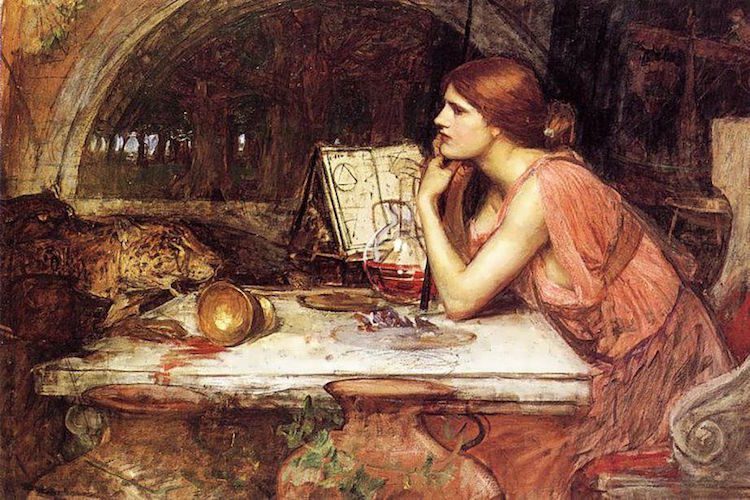
You can practice the virtues. Emulating the gods will elevate you and through that process the gods are more likely to “aide you” because you are aligning yourself with their nature. In myth, gods help exceptional beings such as heroes because they earned it, and it was not earned by magic. The more align we are with the gods, the more we elevate towards them. The greater we become through cultivating the soul, then the essence of what magic is in Hellenism is experienced. Because “magic” in Hellenism is not spells and charms, magic means to be become “great.”
Anything other than this understanding and practice of magic is regarded by the tradition to be a superstitious practice or belief. Superstition in Hellenism is the fear of the gods, and more broadly irrational religious behavior. Superstition is “wrong judgement inflamed by passion” (Plut. de Superstit, IX). The superstitious are afraid of the gods yet run to them for help and protection. Flatter them yet revile them. Blame them but invoke them.
In a reference to magic, Plutarch describes how the “ridiculous actions and emotions of superstition” give reason for people to say “that it were better there should be no gods at all than gods who accept with pleasure such forms of worship, and are so overbearing, so petty, and so easily offended.” Superstitious actions defined here include “its words, gestures, magic charms and spells, rushing about and beating of drums, impure purifications and dirty sanctifications, barbarous and outlandish penances and mortifications at the shrines.” It is illogical and impious behavior. It throws the soul out of harmony.
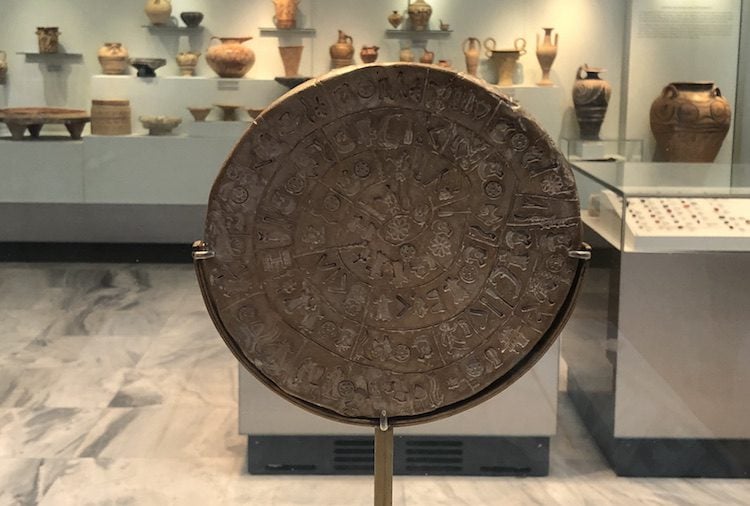
Putting Plutarch into context is important. He was trying to help society, by helping people not be afraid of the gods because that leads to wrong judgements, illogical behavior, and atheism. He wanted people to be happy and love the gods, not fear them. Magic, in this context is preformed from a place of anxiety/fear of the supernatural – a fear and anxiety not warranted.
For more context, we need to imagine ourselves in the ancient world, a place very different from our own today, a time without the excess of luxuries and safety we have now. Back then, life was rough and hard for most people, they had more fears and anxieties about the world. They feared their nightmares could harm them, illness that we can cure today could easily kill them, and so forth. The irrational person in those days blamed the gods for their troubles but then would go pray to the same god to help. By Plutarch’s account – superstitious mentality.
You may think that your magical practice today is not rooted in this definition of superstation, the behavior of illogical judgement inflamed by passion. Look closer because still today we seek to control the elements which we have no control over because we desire the safety it affords or the peace of mind it may provide when we cast that spell. I wager that many people get a feeling of satisfaction in magic because it promises that you can how power and influence in the “spiritual realm” when you cannot in the physical. This is still superstitious by the Greek worldview.
This what real magic is in Hellenism, it is greatness – a specific kind – greatness through virtue and mastering our nature. Real magic is not in candles, oils, crystals, and herbs. Real magic and magicians are artists who can create and manifest from the realm of thought to reality their art. Musicians who stir the motions of the soul through voice and instrument to heal, that is magic those are magicians. The doctor that heals illness is a magician. The diplomat who brings peace instead of war is a magician. These people have excelled and become great – becoming a magos.











